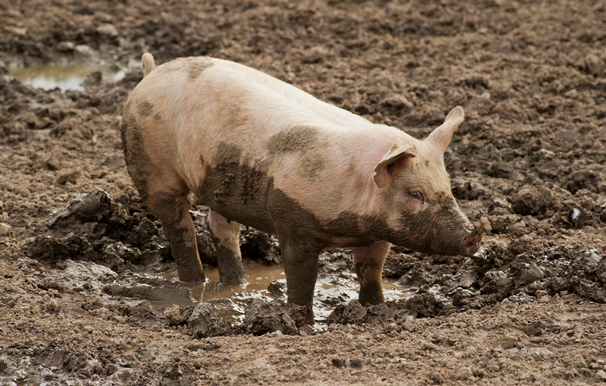What Is Testis Compositum?

Athletes looking for a competitive edge have resorted to some strange performance-enhancing supplements, from the asthma drug albuterol to good old-fashioned cocaine.
And now a supplement known as testis compositum joins that ignoble list. Police allegedly found the substance, along with needles and syringes, in the bedroom of Oscar Pistorius, the Paralympian accused of murdering his girlfriend Reeva Steenkamp, according to the Telegraph. (The substance was initially thought to be testosterone.)
Also called testocompasutium co-enzyme, the supplement is legal, easily purchased on the Internet, and is available as an oral tablet or an injectable solution. But what is testis compositum, and why was it found in Pistorius' house?
The substance contains a lengthy list of animal and plant ingredients, according to the Huffington Post, most notably pig testicles, pig heart and pig embryo. Other ingredients include Spanish fly (a purported aphrodisiac made from crushed beetle), ginseng root and minerals like zinc and phosphorus.
Testis compositum is usually marketed for sexual enhancement, muscle recovery and low stamina. Some marketers advertise it as a testosterone booster, according to the Associated Press.
Arne Ljungqvist, chairman of the International Olympic Committee's medical commission, told the Associated Press that testis compositum sounded like "a real cocktail, all pointing in the same direction, namely having something to do with testosterone."
Dr. Jon Patricios, a sports physician, told the Telegraph that athletes are not advised to use testis compositum since it may increase their testosterone levels. Testosterone supplements are banned for most professional athletes; they’re also known to increase aggression, according to the New York Times.
Sign up for the Live Science daily newsletter now
Get the world’s most fascinating discoveries delivered straight to your inbox.
Testis compositum doesn’t appear on the list of banned substances of most major sports organizations including the World Anti-Doping Agency, according to the Associated Press.
Pistorius underwent two drug tests in London last year for the Paralympics, and tested negative for any banned substances in both tests.
Contact Marc Lallanilla at mlallanilla@techmedianetwork.com. Follow him on Twitter @MarcLallanilla. Follow LiveScience on Twitter @livescience. We're also on Facebook & Google+.










